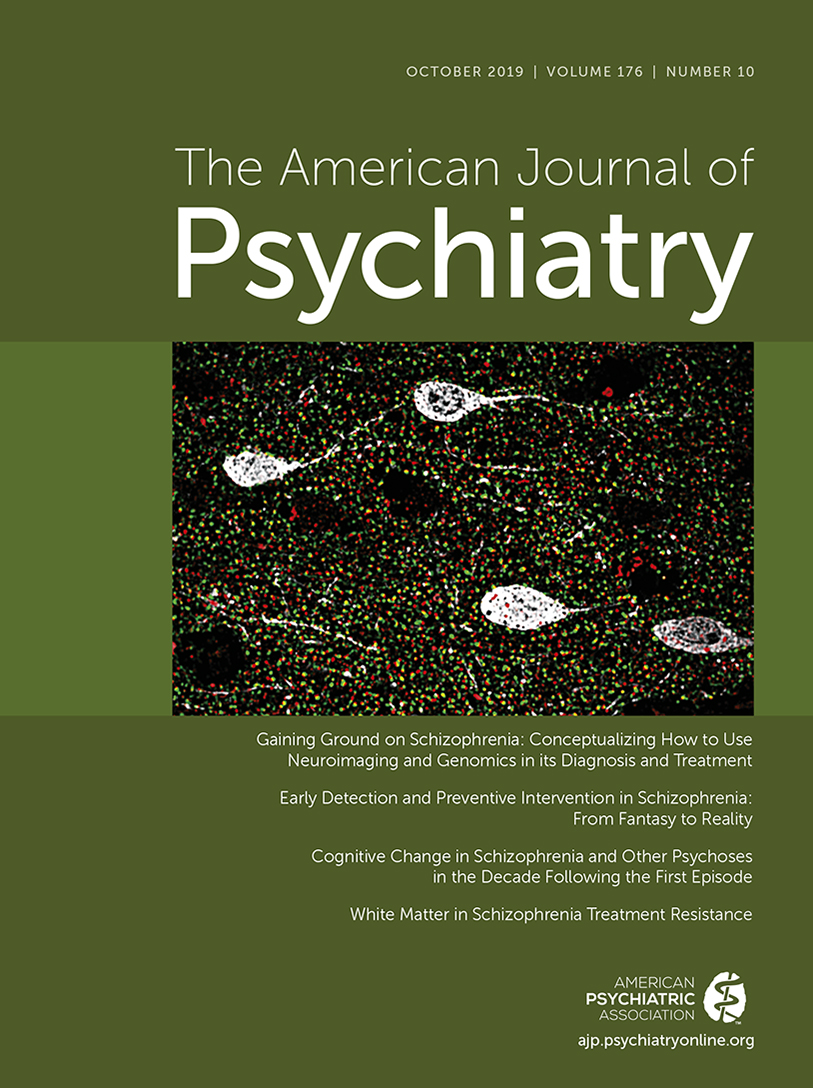Baseline Frontoparietal Task-Related BOLD Activity as a Predictor of Improvement in Clinical Symptoms at 1-Year Follow-Up in Recent-Onset Psychosis
Abstract
Objective:
The early course of illness in psychotic disorders is highly variable, and predictive biomarkers of treatment response have been lacking. Trial and error remains the basis for care in early psychosis, and poor outcomes are common. Early prediction of nonimprovement in response to treatment could help identify those who would benefit from alternative and/or supplemental interventions. The goal of this study was to evaluate the ability of functional MRI (fMRI) measures of cognitive control–related brain circuitry collected at baseline to predict symptomatic response in patients after 1 year.
Methods:
Patients with recent-onset (<2 years) psychotic disorders (N=82) in early psychosis specialty care were classified as improvers (>20% improvement in total score on the Brief Psychiatric Rating Scale [BPRS] at 1-year follow-up compared with baseline) or as nonimprovers. Behavioral (d′ context) and fMRI (proactive control–associated activation in a priori frontoparietal regions of interest) measures of cognitive control were then evaluated on their ability to predict BPRS improvement using linear and logistic regression.
Results:
Cognitive control–associated measures significantly predicted BPRS improvement and improver status, with 70% positive predictive value, 60% negative predictive value, and 66% accuracy. Only the fMRI-based measure (and not the behavioral measure) significantly predicted status.
Conclusions:
These results suggest that frontoparietal activation during cognitive control performance at baseline significantly predicts subsequent symptomatic improvement during early psychosis specialty care. Potential implications for fMRI-based personalized patient treatment are discussed.



